Table of Contents
Indefinite pronouns are words that refer to people, things, or amounts in a general way, without specifying who or what they are. Examples include words like someone, anyone, many, and few. These pronouns help make sentences more flexible by allowing you to talk about non-specific entities.
Understanding how to use indefinite pronouns correctly is important because they add variety and clarity to both spoken and written English.
What are Indefinite Pronouns?
Indefinite pronouns refer to non-specific persons or things. They do not point to a particular individual or group and are often used when the exact identity is unknown or irrelevant. Here are some common indefinite pronouns:
- Everyone
- Somebody
- Anyone
- No one
- Something
- Anything
- Nothing
Examples Sentences:
- I didn’t see anyone at the store.
- Everyone wants to be happy.
- Anybody can join the club.
- Everyone wants to be happy.
- Anybody can join the club..
- Someone is knocking at the door.
Usage of Indefinite Pronouns:
1. We use indefinite pronoun to refer to a non-specific person or thing.
- Someone is knocking at the door.
- I need to buy something for dinner.
- We’re going somewhere warm for vacation.
- Can someone help me with this?
2. We can also use them to make a general statement.
- Anything is possible with hard work.
- Anywhere you go, you’ll find friendly people.
- Nobody is perfect, we all make mistakes.
3. Indefinite pronoun used to indicate an unknown or unspecified quantity:
- I have a lot of work to do today.
- We have many options to choose from.
- Few people understand the concept.
- All are welcome to attend.
Remember that some indefinite pronouns can be used in both formal and informal writing, while others are more suitable for casual conversation.
Examples of Indefinite Pronouns in Sentences
- Someone left their phone on the table.
- I don’t know if anybody will show up to the meeting.
- Everyone is excited about the holiday.
- Nobody knew the answer to the question.
- Something smells delicious in the kitchen.
- Few of the students understood the complex problem.
- Many have tried, but only a few succeeded.
- Anyone can join the game if they want.
- Nothing is impossible if you work hard.
- All of the cookies were eaten before lunch.
Indefinite pronouns like someone, anyone, everything, and nothing refer to non-specific people or things. These pronouns are useful when you don’t need to specify exactly who or what you’re talking about.
Indefinite Pronouns in Negative Statements
Common indefinite pronouns used in negative sentences include nobody, no one, nothing, none, and few.
Examples:
- Nobody is attending the meeting.
- Nothing can stop us now.
- No one knows the truth.
- Few have experienced such an adventure
- I have nothing to add to the discussion.
- None of the answers were correct.
Indefinite Pronouns in Questions
Common indefinite pronouns used in questions include anyone, everyone, someone, no one, nobody, and anything.
Examples:
- Is anyone coming to the party?
- Is anyone coming to the party?
- Is anyone coming to the party?
- Is there anything I can help you with?
- Who knows if there is anyone interested in joining?
The combination of who and anyone allows the speaker to inquire about potential interest without naming individuals.
Plural Indefinite Pronouns
Examples of plural indefinite pronouns include both, few, many, several, and others.
Key Plural Indefinite Pronouns:
- Both:
- Few:
- Many:
- Several:
- Others:
Refers to additional people or things besides those already mentioned.
Some chose to leave, while others stayed behind.
Plural Indefinite Pronouns Examples
- Both of the answers are correct.
- Few people know the truth about the incident.
- Many have applied for the scholarship this year.
- Several were chosen to represent the school.
- Others are planning to attend the meeting later.
- Both of the children were playing outside.
- Few understand the complexity of the problem.
- Many enjoy traveling to new places.
- Several of them have completed the assignment early.
- Others believe that the policy should be changed.
- Few customers complained about the new product.
- Many students prefer online learning.
- Several employees requested additional training.
- Both options are available to choose from.
- Others felt the movie was too long.
Indefinite Pronouns that Can Be Singular or Plural
Indefinite pronouns that can be singular or plural vary based on the context of the sentence. They refer to non-specific amounts or people and their verb agreement depends on the noun they refer to.
Example Words: All, any, more, most, none, some.
Examples in Sentences:
- All of the cake is gone. (singular: referring to cake)
- All of the students are present. (plural: referring to students)
- Some of the water was spilled. (singular)
- Some of the cookies were eaten. (plural)
These sentences show how plural indefinite pronouns are used to refer to groups of people or things and how they pair with plural verbs.
List of Indefinite Pronouns
Indefinite pronouns can be singular and plural.
Singular indefinite pronoun:
- someone
- somebody
- something
- someone or other
- one
- another
- anything
- nothing
- nobody
- no one
Plural Indefinite Pronoun:
- some
- any
- all (can be singular or plural)
- both
- many
- few (used with plural nouns)
- others
- several
Rules to Keep in Mind
Verb Agreement:
Ensure that the verb agrees with the indefinite pronoun. Singular pronouns take singular verbs, and plural pronouns take plural verbs.
- Everyone is excited. (singular verb)
- Many are waiting. (plural verb)
Reflexive Pronouns:
When using reflexive pronouns with indefinite pronouns, match the subject properly.
- Someone hurt themselves. (gender-neutral)
- Each should bring their own lunch.
Indefinite Pronouns as Subjects:
They can often be the subject of a sentence, and their meaning must be clear from context.
- Everything seems fine.
- Everyone enjoyed the concert.
You May Also Like

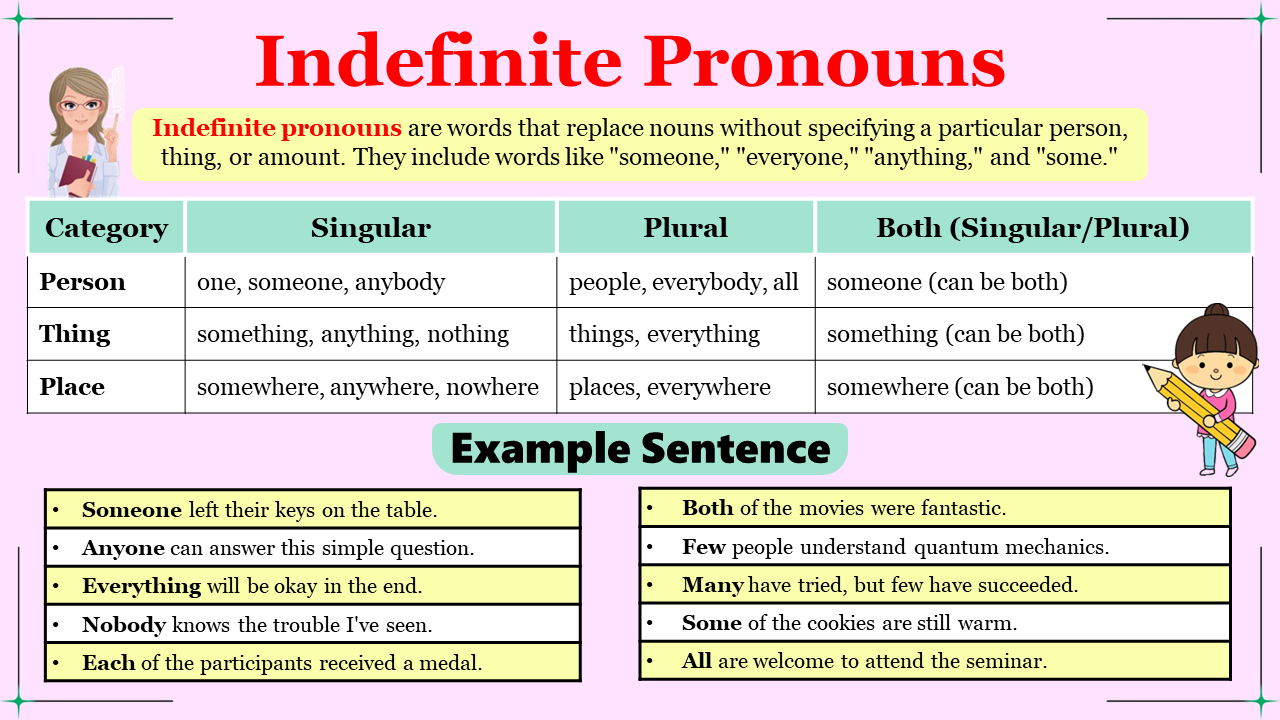
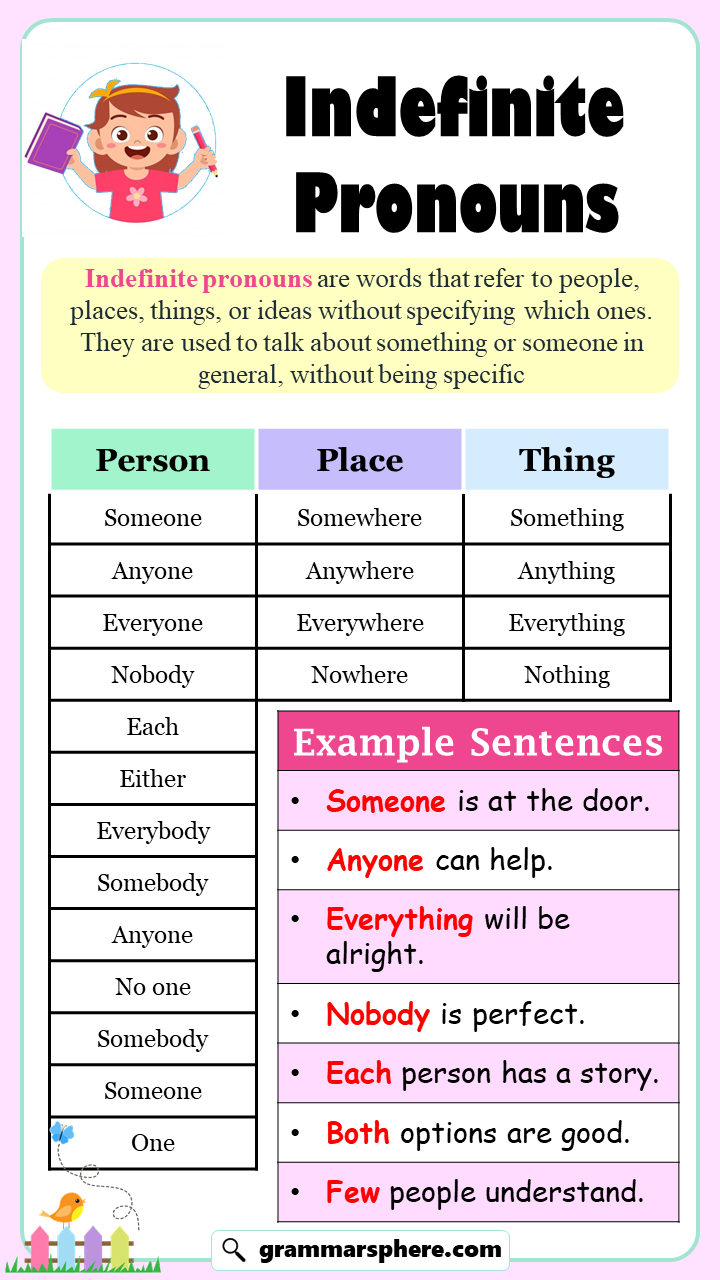
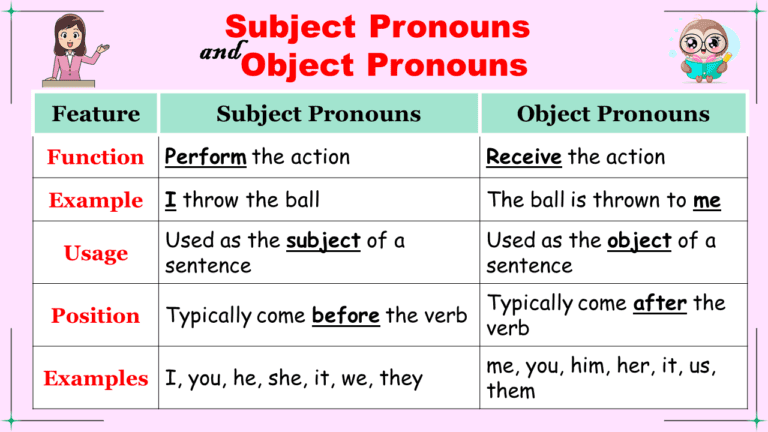
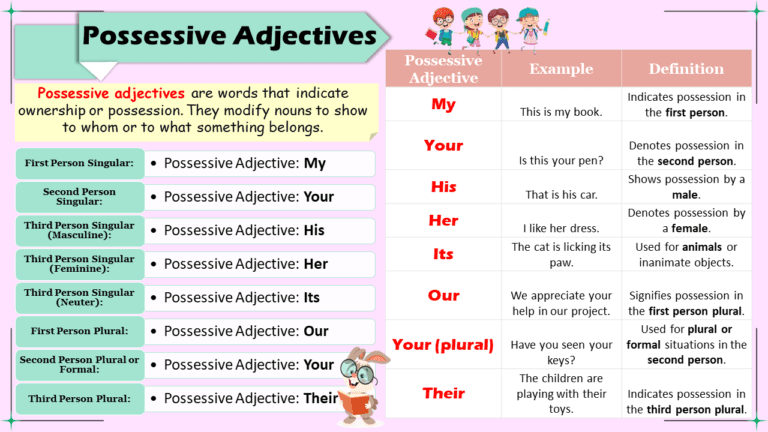
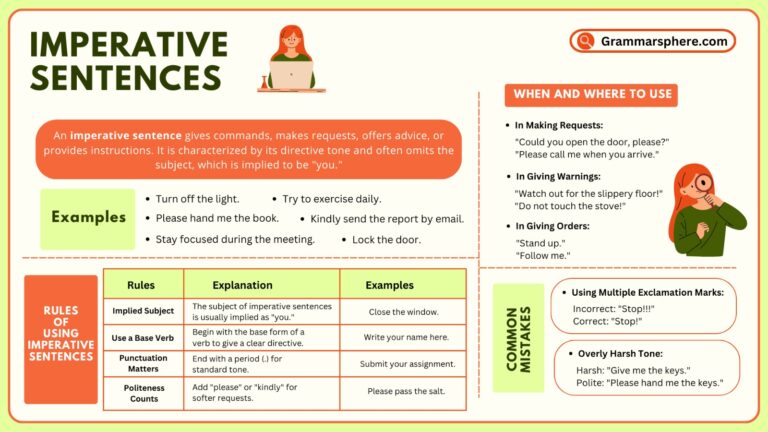
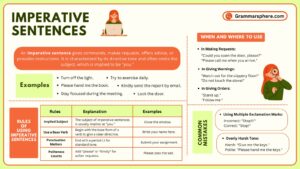
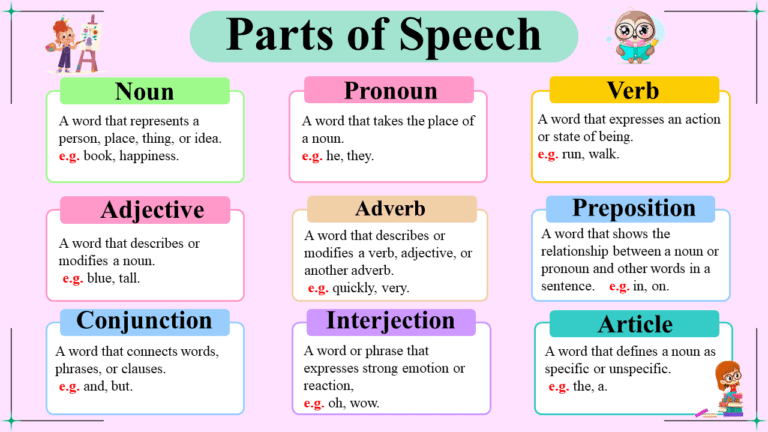
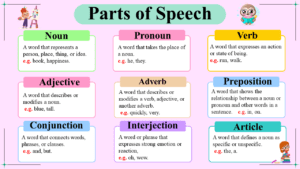
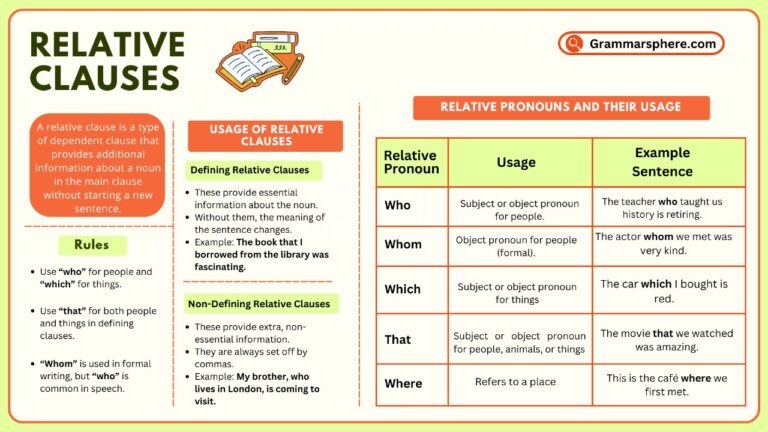
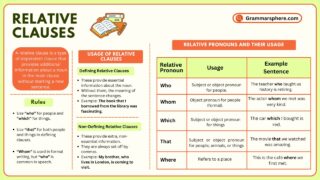
Leave a Comment